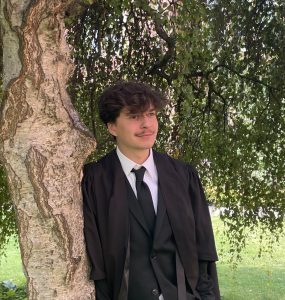Ethnographically mapping ‘history’ and its socio-spatial manifestations
Abstract
The past, we are often told, “lives through in the present”. Yet, the exact way it does so appears to be extremely diverse and context-specific (Palmié & Stewart 2019). To map people’s complex “dialogues with the past” in their local context, ethnographic research can prove valuable. This workshop explores how to ethnographically study “history” – which I broadly approach as contemporary representations/imaginations of and relations to the past – and its entangledness with socio-political life in a context-specific and critical way. It does so through a case study of the South London district of Brixton.
As a critical point of settlement for post-war and postcolonial immigration, Brixton is known for its Black population as well as for its history of Black anti-racist activism. For a long time, violent histories of empire and (anti-)racism have only circulated within these Black communities. Black memories and historical perspectives have remained overshadowed by dominant White British ones. However, through recent Black counter-memory work particularly pre

sent in Brixton, these dominant perspectives have been increasingly and publicly challenged. Thus, White Brixtonians increasingly encounter and engage with Black histories, too. Building on 10 weeks of ethnographic fieldwork I conducted in the district in 2023, I explore how the public rise of these ‘Black histories’ shape their ‘historical consciousness’ and, as such, re-articulate their relations to their Black neighbours.
I argue that Brixton’s changing historical consciousnesses reproduce ‘race’ (including Whiteness) in close dialogue with Brixton’s spatial configurations. Discussing ongoing local Black (counter-)memory work, I expose the entangled role of history, space, and ‘race’ in the articulation of its everyday relations. First, I demonstrate how Brixton’s ‘Black Histories’ have become spatially materialised and have taken an increasingly central place in Brixtonians’ imagination of the district. Zooming in on two sets of spaces and local historical narratives, I then show how White Brixtonians’ spatially embedded historical consciousness manifests itself in various ways but consistently reproduces ‘race’ as a structuring element of Brixton’s everyday life. Sometimes, it generates cross-racial solidarity. Yet, in a context of growing gentrification, it also gets co-opted, aestheticised, and commercialised, resulting in the very re-institutionalisation of Whiteness. Ethnographically exposing these power-engrained socio-spatial manifestations of Brixtonian’s historical consciousness, I hope to provide some tools to study how precisely “history” emerges in a way that is both context-specific and socially critical.
(Ps: this workshop is based on a refined version of a paper I presented at the European Association for Social Anthropologists Conference in July 2024).
Bionote
I am a PhD researcher in Social Anthropology, funded by the Allen, Meek & Read Cambridge International Scholarship. I originally studied history and historical theory at Ghent University, for which I received a BA in 2021 and an MA in 2022. Supported by the Fayat Scholarship from the Flemish Government, I then obtained an MPhil in Social Anthropology at the University of Cambridge in 2023. Throughout my studies, I variously researched people’s engagements with postcolonial histories. For my PhD, I now focus on how people live with “difference” in postcolonial contexts. For this project, I’m conducting long-term ethnographic fieldwork in an ethnically diverse neighbourhood of Antwerp – my hometown. Here, I explore how local youth experience neighbourhood life, diversity, and various (historically engrained) processes of exclusion.
Practical information
When?
November 18 — 12u30
Where?
- Join us offline:
- 130.002 UFO, Campus Ufo (Sint-Pietersnieuwstraat 33, 9000 Gent)
If you wish to join us offline, please send us an e-mail at tapas@Ugent.be so that we can reserve you a seat.
- Join us online: Video call link